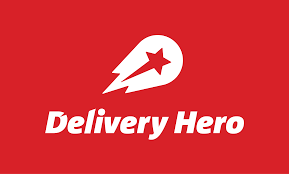商业板块
German blue chips
德国蓝筹股
Ascend and deliver
外卖超人上榜
Delivery Hero could last longer in the DAX 30 than the firm it has replaced
相比被取代的公司,外卖超人会在DAX 30榜单上停留更久
Joining the index of Germany’s 30 biggest listed companies is usually a cause of celebration for the joiner rather than of controversy. Yet the arrival of Delivery Hero in the DAX 30 on August 24th ignited a fierce debate. How, critics grumble, can a food-delivery company that has never made money or paid a dividend, and no longer even does business in Germany, sit alongside Siemens, a 173-year-old engineering behemoth, and Volkswagen, Europe’s biggest carmaker, in the elite group of the bluest of German blue chips?
一家公司若能加入德国30家最大上市公司的指数,那通常是一件值得庆祝,而非引发争议的事。然而,外卖英雄在8月24日上榜DAX30,这引发了一场激烈的争论。批评人士对此抱有微词,一家从未盈利,也从未支付股息,甚至不再在德国开展业务的送餐公司,是如何能够与拥有173年历史的工程巨擘西门子以及欧洲最大汽车制造商大众,一起跻身于德国蓝筹股最蓝的精英集团之列?

The simple answer is that membership of the DAX is determined mainly by market value and turnover of shares, with no profitability test (unlike America’s S&P 500 index of big firms, which requires four consecutive quarters in the black, among other criteria). And in that respect, Delivery Hero qualifies handily. Niklas Ostberg, its Swedish chief executive, boasts that the firm’s market capitalisation of 18.7bn euros ($22bn) is higher than that of several DAX members. Its share price has tripled over the past couple of years and it has attracted investments from the world’s richest companies, including Alibaba and Amazon, two global internet giants.
答案很简单,DAX指数的成员资格主要由市值和股票换手率决定,没有盈利能力测试(不同于美国的标准普尔500大公司指数,该指数要求连续四个季度盈利,还有其他标准)。在这方面,外卖超人就轻易获得资格了。外卖超人瑞典首席执行官尼克拉斯·奥斯特伯格夸耀公司的市值为187亿欧元(合220亿美元),高于DAX的几家成员公司。该公司的股价在过去几年里增长了两倍,并吸引了世界上最富有的公司进行投资,包括阿里巴巴和亚马逊这两家全球互联网巨头。













